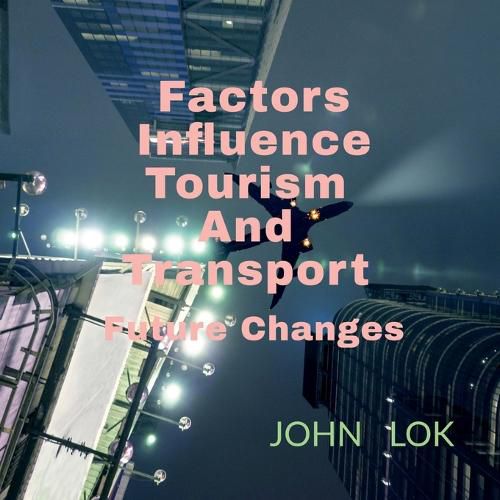Readings Newsletter
Become a Readings Member to make your shopping experience even easier.
Sign in or sign up for free!
You’re not far away from qualifying for FREE standard shipping within Australia
You’ve qualified for FREE standard shipping within Australia
The cart is loading…






This title is printed to order. This book may have been self-published. If so, we cannot guarantee the quality of the content. In the main most books will have gone through the editing process however some may not. We therefore suggest that you be aware of this before ordering this book. If in doubt check either the author or publisher’s details as we are unable to accept any returns unless they are faulty. Please contact us if you have any questions.
Nowadays, global tourism industry is experiencing decline stage or decline life cycle stage due to COVID19 human hung disease occurs. It brings many travelers begin to feel fear to catch air planes because any one passenger may be gotten this kind of new disease when one or more than one passenger who had owned this kind of new lung disease and he/she is or they are sitting in the air plane. So, many travelers believed that when one owned COVID 19 lung disease passenger is catching in any one air plane, it will have high chance that they will be contacted to give this kind of disease easily by the air in the closed windows airplane. Due to this reason, this kind of new disease had influenced global many travelers felt fear to catch air planes to go to different countries to travel in these two years, even future. However, whether COVID 19 disease is the main factor to influence global tourism industry decline and oil price changes. It is one interesting question to research.
In my this book, I shall attempt to apply behavioral economic theory to explain why and how traveler individual catching air planes leisure activities or travelling leisure need or leisure activities, they have direct or indirect relationship to influence future fuel price changes. Readers can attempt to follow behavioral economic view to explain whether traveler individual leisure activities can have any relationship to influence future global fuel need changes or price changes.
$9.00 standard shipping within Australia
FREE standard shipping within Australia for orders over $100.00
Express & International shipping calculated at checkout
This title is printed to order. This book may have been self-published. If so, we cannot guarantee the quality of the content. In the main most books will have gone through the editing process however some may not. We therefore suggest that you be aware of this before ordering this book. If in doubt check either the author or publisher’s details as we are unable to accept any returns unless they are faulty. Please contact us if you have any questions.
Nowadays, global tourism industry is experiencing decline stage or decline life cycle stage due to COVID19 human hung disease occurs. It brings many travelers begin to feel fear to catch air planes because any one passenger may be gotten this kind of new disease when one or more than one passenger who had owned this kind of new lung disease and he/she is or they are sitting in the air plane. So, many travelers believed that when one owned COVID 19 lung disease passenger is catching in any one air plane, it will have high chance that they will be contacted to give this kind of disease easily by the air in the closed windows airplane. Due to this reason, this kind of new disease had influenced global many travelers felt fear to catch air planes to go to different countries to travel in these two years, even future. However, whether COVID 19 disease is the main factor to influence global tourism industry decline and oil price changes. It is one interesting question to research.
In my this book, I shall attempt to apply behavioral economic theory to explain why and how traveler individual catching air planes leisure activities or travelling leisure need or leisure activities, they have direct or indirect relationship to influence future fuel price changes. Readers can attempt to follow behavioral economic view to explain whether traveler individual leisure activities can have any relationship to influence future global fuel need changes or price changes.